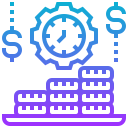
Unlocking Trust: Benefits of Using Blockchain in Financial Operations
Chosen theme: Benefits of Using Blockchain in Financial Operations. Discover how transparent ledgers, smart contracts, and tokenized assets can reduce friction, accelerate settlement, and open new financial possibilities. Share your biggest operational bottleneck and subscribe for practical insights and real-world stories.



Faster Settlements, Fewer Bottlenecks
01
From T+2 Toward T+0 Scenarios
Atomic settlement aligns delivery and payment in a single transaction, reducing counterparty risk and operational drag. Even partial acceleration eases capital constraints. Where could faster settlement free liquidity for your priorities? Share your use case.
02
Streamlined Compliance and Reporting
On-chain metadata captures compliance evidence at the moment of execution. Regulators and internal controllers can verify controls without time-consuming data hunts. Would embedded compliance lighten your reporting load? Tell us what reports consume your week.
03
Case Snapshot: Tokenized Commercial Paper
An issuer tokenized short-term debt, enabling programmatic settlement with whitelisted investors. Funding windows shortened, and fees declined. If you manage short-term instruments, would tokenization help your cycles? Tap subscribe for deeper case breakdowns.
Security by Design for Financial Integrity
Digital signatures prove origin, while hashed records expose tampering instantly. Instead of trusting a single database, participants verify each other’s entries. What critical approvals would you secure with signatures first? Share your thoughts below.
Security by Design for Financial Integrity
Data is replicated across multiple nodes, hardening operations against outages or unauthorized changes. The network’s resilience supports continuous service. Would distributed redundancy strengthen your current availability targets? Tell us where resilience matters most.

Cost Optimization Through Automation
Smart Contracts Cut Manual Work
Rules codified on-chain execute consistently: releasing funds, applying discounts, or calculating fees precisely when conditions match. Teams reclaim hours for analysis instead of rote processing. Which repetitive task would you automate first? Share your candidate.
Fewer Disputes, Faster Decisions
Shared state and deterministic logic reduce ambiguity, shrinking dispute windows and legal exposure. Clear, timestamped events make exceptions easier to resolve. Where do disagreements cost you most? Comment and we’ll cover targeted mitigation patterns.
Trade Finance Example: Letters of Credit
Digitized documents and milestone proofs let smart contracts release payments as goods move. Banks, shippers, and buyers synchronize automatically. If trade paperwork slows your cash conversion, would programmable triggers help? Subscribe for process blueprints.
Interoperability With Existing Systems
Shared data models, identity frameworks, and governance rules reduce integration friction. Consortia align participants around interoperability, minimizing custom work. Which standard would help your partners align faster? Share the protocols you already trust.

New Revenue Models and Financial Innovation
Tokenization of Real-World Assets
Fractionalizing assets expands investor access and improves liquidity while preserving compliance through permissions. Market makers gain flexibility and granular settlement. Which asset class do you think benefits first? Share your instincts to guide future posts.
Programmable Money and Conditional Payments
Escrow, milestones, and dynamic pricing can be embedded in payment flows, reducing overhead and aligning incentives. Finance teams gain precision without micromanagement. Where could conditional payments curb leakage? Tell us and we’ll explore architectures.
Loyalty as a Financial Asset
A retailer issued tokenized rewards redeemable across partners, creating a mini-economy with measurable breakage and engagement. Customers loved transferability; finance loved clarity. Would interoperable rewards deepen loyalty in your sector? Subscribe for design patterns.
